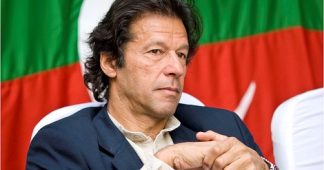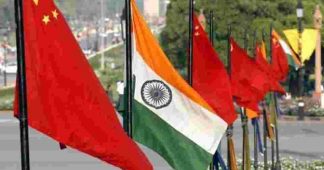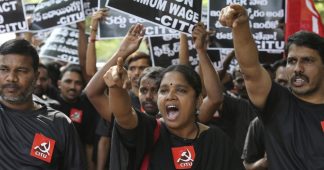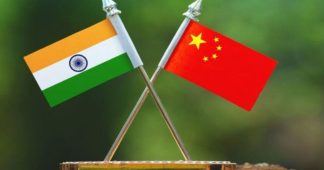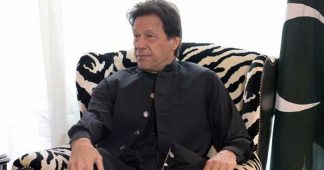Under the Narendra Modi government, there has been a special thrust on citizens’ duties over rights. But the former cannot be performed effectively unless the state fulfils its obligation towards citizens.
By Manoranjan Mohanty
Aug 22, 2022
Prime Minister Narendra Modi’s Independence Day address on August 15 this year had an important focus on ‘five pledges’ (panch pran) for India to fulfil its dreams by 2047. These are: resolve for building a developed India, removing any trace of the colonial mindset, taking pride in India’s legacy, building the strength of the unit, and fulfilling our duties (kartavya).
These pledges were presented as necessary to fulfil the lofty dreams of our freedom fighters for the centenary of India’s Independence in 2047.
Coincidentally, on the same day Chief Justice of India N.V. Ramana – who retires on August 26 – said, “Fundamental duties are not merely pedantic or technical. They were incorporated as the key to social transformation.” A few days earlier, President Droupadi Murmu, speaking after being sworn in, stressed the need for ‘sabka prayas and sabka kartavya’ – efforts of all and duties of all.
All this comes amid a raging debate over ‘freebies’ or free provisions to people which gathered momentum after the prime minister’s derisive description of them as revdis – cheap candies popular in north India.
Until recently, common people felt that their struggles had succeeded with the enactment of laws such as the Right to Information (RTI) Act, Mahatma Gandhi National Rural Employment Guarantee Act (MGNREGA), Right to Education (RTE) Act, Forest Rights Act and Food Security Act. A campaign for securing the right to healthcare is still on.
It is surprising how fast the politics and economics of contemporary India have moved away from a framework of providing basic socio-economic rights and safeguarding civil liberties.
No doubt, duties are important in the functioning of human civilisation. They must be performed by all individuals, groups and institutions as moral imperatives with implications for all aspects of life. The question is whether duties should be linked to rights and get precedence, diminishing the significance of rights, whatever the justification. Rights embody the fruits of long years of struggles in the history of civilisation.
Duties cannot be insisted upon as a price for granting rights, whether it is done in the name of pursuing patriotic goals such as achieving growth, “making India no. 1” and so on. Undermining people’s rights depletes their energy and enthusiasm in the long run, defeating the goals themselves.
In October last year, Prime Minister Narendra Modi had given the duties discourse a new life in India while addressing the 28th Foundation Day meeting of the National Human Rights Commission, saying that “while the world is focusing on human rights, keeping our Indian traditions in mind, we must emphasise on duties as well”.
At the Brahma Kumaris Sanstha function in January, he gave a further justification for the significance of ‘duties’, saying that forgetting the performance of duties had kept India weak in the past.
Interestingly, the focus on duties began to take a new shape during the National Democratic Alliance (NDA) regime of Atal Bihari Vajpayee (2000-04) when the Ministry of Human Resources Development (MHRD, now education ministry) led by Murli Manohar Joshi initiated a number of measures in various academic programmes in the country.
During the decade of the 1990s – after the UN Conference on Human Rights in Vienna and the setting up of the National Human Rights Commission in 1993 – teaching and research on human rights were systematically introduced in many Indian universities. Meanwhile, a civil liberty and democratic rights movement had already emerged in India in the wake of the JP Movement and the campaign against the Emergency. That trend got additional momentum during the Janata Party regime when the independent media spread into remote rural and tribal areas with a new genre of reporters bringing people’s rights issues to national attention.
Just when this trend had got institutional forms at the turn of the century, the MHRD of the NDA regime decided to rename all human rights programmes as ‘Human Rights and Duties’ programmes, including those of the University Grants Commission (UGC) and the National Council of Educational Research and Training (NCERT).
Since then, the arena of discourse in academic and social spheres has remained one of the cross-cutting perspectives. The National Education Policy (NEP) is the latest framework of this kind that purports to prepare the Indian youth to acquire the most modern scientific and technological tools in the era of the Fourth Industrial Revolution while being rooted in Indian tradition without any commitment to the objectives of fulfilling every Indian child’s Right to Education guaranteed by the Indian constitution.
In Gandhi’s name
What is interesting is that Prime Minister Modi has sometimes quoted Mahatma Gandhi to justify the priority he gives to duties over rights. One must remember that Gandhi’s political consciousness was originally spurred by Bal Gangadhar Tilak’s affirmation, “Swaraj is my birthright and I shall have it”. All his life Gandhi fought for people’s rights – from the right to independence of the people of India to the rights of farmers in Champaran, the right of people to make salt, the right to wear khadi and above all the right to equality of humans, which formed the basis of his campaigns against ‘untouchability’ and for women’s development.
Gandhi’s monumental contribution to global heritage, the theory and practice of Satyagraha is centred on the premise that a violation of human rights is a violation of truth. Satyagraha was a protest against laws and practices by regimes and social forces which were unjust and violated the basic rights of humans.
Gandhi valued the performance of duties enormously. But his life’s overall message cannot be missed. It was to immerse completely in the struggle for the realisation of the rights of the deprived people. The moral-political person that he was undoubtedly insisted on the performance of duties in the course of that struggle. Commitment to moral values always guided Gandhi’s work. But this did not imply that he gave precedence to duties over rights the way Modi has been suggesting.
Invoking Indian tradition, historical interpretation of India’s subjugation by foreign powers and Mahatma Gandhi’s philosophy, Prime Minister Modi has tried to shape the duties discourse in India to seek compliance with his perspective on building a new India as a Vikshit Bharat (developed India). In all probability, like the term Atmanirbhar (self-reliant) this is going to be an important component in India’s new vocabulary in the coming years.
The Emergency Amendment
Linking duties with rights is by no means a new initiative of the BJP regime.
It is well known that during the Emergency regime of Indira Gandhi, a section called Fundamental Duties was added to the constitution of India as Part IV-A with Article 51A under the 42nd Amendment of 1976 listing 10 duties.
All of them were unquestionably important duties of every citizen, ranging from respecting the constitution, national flag and national anthem and noble ideals of the freedom struggle and upholding and protecting the sovereignty, unity and integrity of India to striving for excellence in all spheres. In fact, while many distortions and authoritarian insertions made through that Amendment were dropped by the 44th Amendment enacted by the Janata Party regime in 1978, this section was retained.
In fact, the Vajpayee government which added Article 21A making the Right to Education a Fundamental Right through the 86th Amendment in 2002 also added one more item to the list of Fundamental Duties making it the duty of every parent or guardian to provide educational opportunity to his/her child between the age of six and 14 years under the same Amendment. That it was necessary to add this as a duty revealed the anxiety of the leadership that statement of rights was not enough. It also indicated the shared perspective of elites on highlighting the duties over rights.
But now the stamp of the supreme authority has been apparently put on what is primary for Indians as they give their best for a Viksit Bharat. It is kartavya (duty) of one and all to strive to fulfil the goals of our freedom fighters. No one would question this call.
However, to achieve that, to motivate every Indian to perform duties they deserve the full realisation of their citizenship rights. The freedom struggle and the struggle to fully implement the goals of the Indian constitution during the past 75 years has been a progressive journey for the Indian people on that path.
The rights debate
Students of the political theory of rights may not be surprised by such developments. In history, whenever the struggle for a right has reached such a point that the rulers are compelled to concede it, they demanded a commitment from the right-bearers, a duty performed in return.
In the 1860s, when the historic struggle of the workers in Chicago secured the right of workers to an eight-hour work day, the employers while agreeing to this arrangement put into force many regulations to ensure better productivity from the workers. That tradition percolated to all spheres as more and more rights were secured by people. While the right to vote became a universal franchise, the right to property remained a primary concern of the state in one form or the other.
This was then theorised in liberal-democratic discourse by defining rights as ‘claims granted by law’. In other words, only those demands that the rulers accept as legitimate and agree to enact a law to guarantee them are rights.
No doubt, legislative recognition or incorporation in the fundamental law of the land, namely the constitution, is an important stage of acknowledgement of the right. But that rights are products of long years of struggle, and legal and constitutional guarantee are only stages – albeit important ones – of realising those rights has to be recognised.
Therefore, people’s struggles for a particular right continued even after a law had been enacted, because every law is a compromise between the dominant interests and the aspiring forces. The struggle for equality across castes in India from Buddha to Ambedkar to now is a good example of this phenomenon.
In liberal theory, therefore, rights and duties are linked in more ways than one.
Firstly, the rights of individuals entail the duty of the state to enforce them. Hence the state apparatus – the police, the bureaucracy and the courts – are entrusted to implement the law.
Second, every right comes with reasonable conditions restraining its use. Article 19 of the Indian constitution is a good example as each freedom is qualified with conditions. Third, the rights of one individual involve the duty of other individuals to respect his/her right.
While this is the legal framework governing our political system, the political practice in India and the world over conveys a very different theory. These are not duties in the sense of moral obligations but are requirements under the law that the state and other individuals are obliged to perform.
As for the restraints, the concept of rights treats it as a definitional element of rights because what I claim as my right I must grant others in similar conditions as enjoying their rights. Even more important is to recognise that the rights of the individual are always connected to that individual’s multiple identities – gender, caste, ethnicity, race, religion, language, class, and others.
Thus, a dimension of mutuality is inherent in the notion of rights as they have evolved through struggle. At the same time, the multidimensionality of an individual or a group’s relations is part of this understanding. Most importantly, linking the rights of humans with the rights of nature is emerging as the overarching framework defining the notion of rights. This is the outlook that has achieved great milestones for the rights of Dalits, Adivasis, women, children, the disabled and the working class.
Against this historical trend of rising democratic consciousness of oppressed groups seeking the realisation of their rights to fulfil their Swaraj goals, the fresh attempt in India to dilute the significance of rights and launch a Kartavya campaign is perhaps not the best way to march towards the centenary of India’s Independence in 2047.
* Manoranjan Mohanty, formerly of Delhi University, is a Distinguished Professor at the Council for Social Development, New Delhi. He can be reached at mmohantydu@gmail.com.
We remind our readers that publication of articles on our site does not mean that we agree with what is written. Our policy is to publish anything which we consider of interest, so as to assist our readers in forming their opinions. Sometimes we even publish articles with which we totally disagree, since we believe it is important for our readers to be informed on as wide a spectrum of views as possible.
